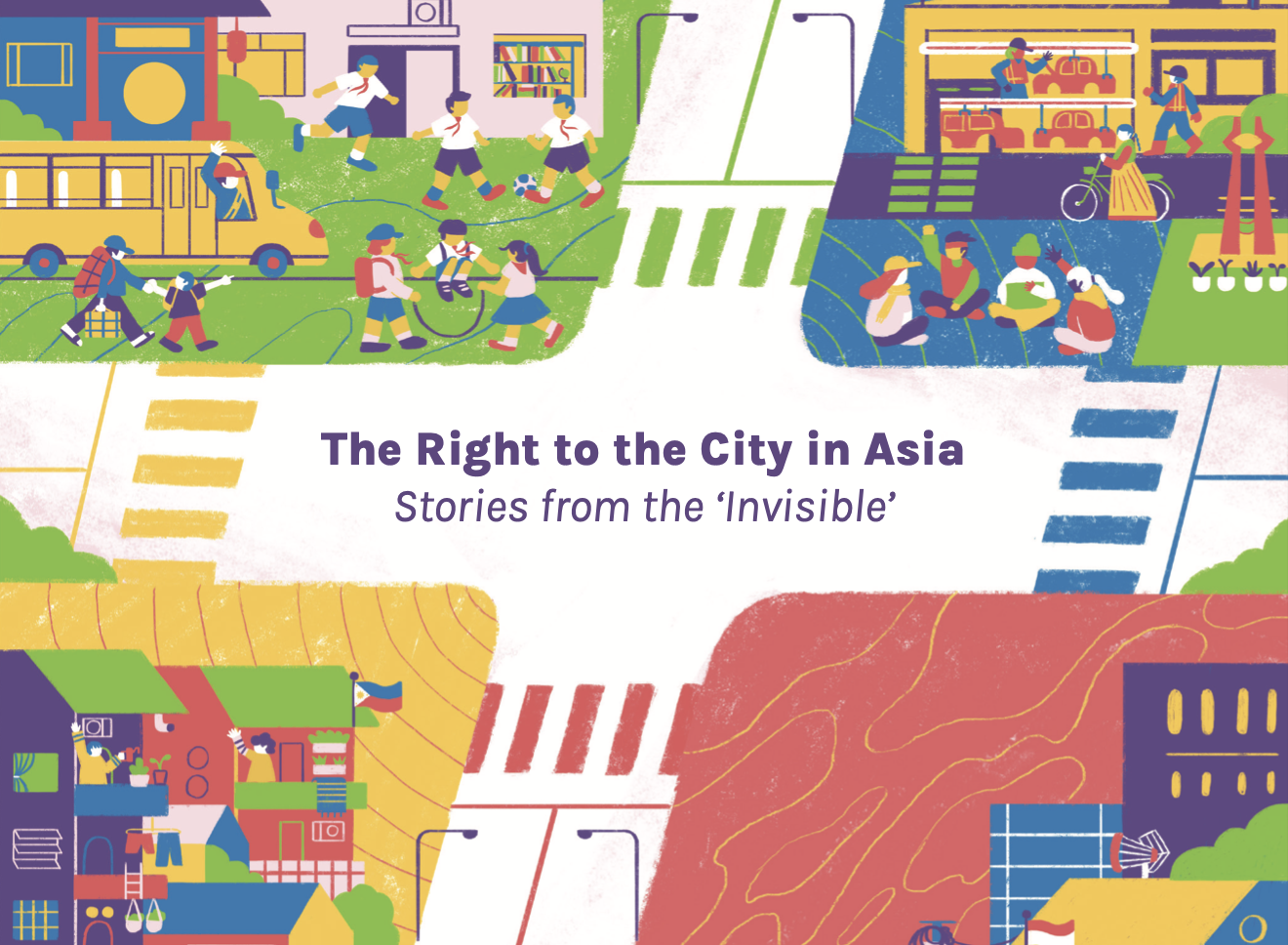
This research raises questions about the right to the city both in terms of definition and practice in the Asian region, drawing on the experiences of four countries: China, South Korea, Indonesia, and the Philippines.
Through a fruitful collaborative process, the paper attempts to synthesize a viewpoint or conclusion that intersects the region’s rich and diverse culture, norms, and policy positions. Despite the contrasts, the report finds certain similarities in the findings, perspectives and lessons learned as common ground that could lay the foundation for future steps in advancing the Right to the City agenda in Asia.
In China, the research aims to examine: the right to education in China through the lens of migrant children; and the impact of migrant workers’ access to public services on their right to inclusive citizenship. These issues are inscribed in the broader Right to the City agenda and show the complexity and urgency of the intersection and interaction of the different components of the Right to the City, such as inclusive citizenship, gender equality and urban-rural linkages.
In South Korea, the main objective of the case study in Gwangju is to highlight the right to the city in migrants’ access to public services. The research focuses on migrants as a disenfranchised demographic group, traditionally excluded from access to public services. This is due to their low socio-economic status, limited rights based on their visa status, discrimination and poor Korean language skills.
In Indonesia, the research assesses and observes urban informality in Jakarta, Yogyakarta and Solo, using the three main pillars of the Right to the City framework: spatially just distribution of resources, socio-cultural diversity and political agency. The fair distribution of urban resources is an important notion for understanding the practice of the inclusive economy and how the urban territory or spaces in which we live are managed so that citizens can enjoy equal access to the economy without discrimination or marginalization of vulnerable and disempowered individuals/groups.
In Philippines, the research was done with two key cities, Manila and Quezon. From each team’s findings, the research considers regional findings consolidated through the following questions:
- What is the main underlying takeaway from a regulatory framework on the state’s role to
protect, fulfill and promote The Right to the City? What is the role of local authorities? - What are the common challenges faced by marginalized communities in each country related to the Right to the City agenda? What are the existing opportunities to strengthen the Right to the City practice?
- What are the role and the importance of civil society actors in promoting the Right to the City agenda? How is the relationship between the state and civil society in exercising the Right to the City?
While the research seeks to address these questions, it also reflects on the current normative framework of Right to the City practices and the various citizen-led initiatives to respond to urban challenges. In addition, the paper seeks to incorporate the findings to consider the Right to the City as a tool for leveraging civil society movements and governments in shaping more democratic and socially just cities in Asia.
Co-Authors:
Gwangju International Center (GIC), South Korea
• Shin Gyonggu
• Alan Brown
• Thi Nghi Phuong Nong
• Hoi Yee Chan
• Joyce John
• Farok Omar
• Joo-Kyung Park
Social Equity and Participation Center , Chima
• Ming Zhuang
• Su Yun Woo
• Ray Liu
• Hongli Cheng
• Mai Sun
• Qian Rong
• Haiqian Wang
• Yu Yin
Kota Kita Foundation, Indonesia
• Ahmad Rifai
• Vanesha Manuturi
• Fildzah Husna Amalina
• Namira Fathya
• Naretta Veronica
Community Organizers Multiplicity, The Phillipines
• Maria Fides Bagasao
• Ramon Espena, Jr.
• Jessica Amon
• Princess Asuncion Esponilla
• Gerald Nicolas
• Kreeger Bonagua
• Kimberly Reyes
• Francis Rosanes, Jr.
• Sri Sofjan (From theGlobal Secretariat of Huairou Comission)
Co-coordinated by Nelson Saule Junior and Henrique Frota (Global Platform for the Right to the City); Vanesha Manuturi and Fildzah Husna Amalina (Kota Kita).
Download now!




